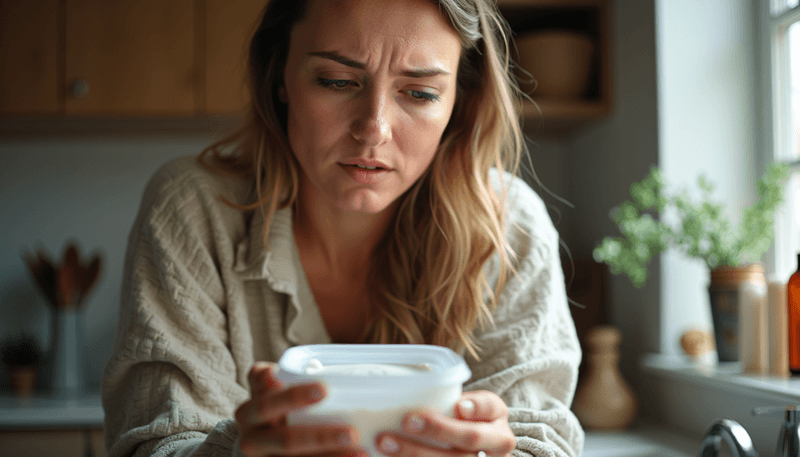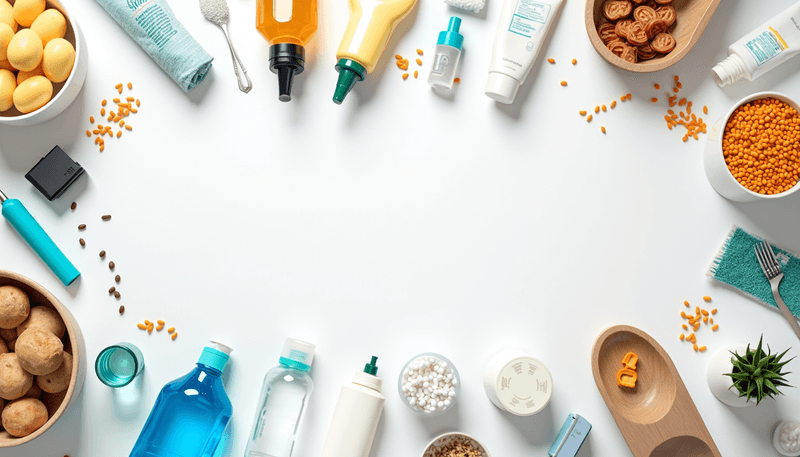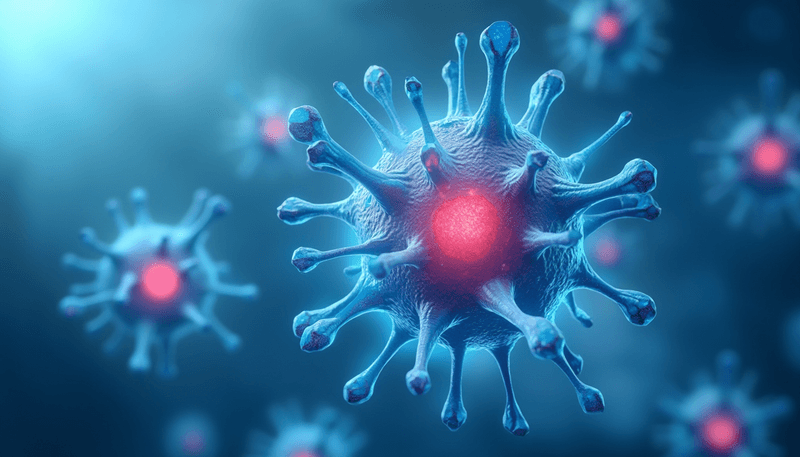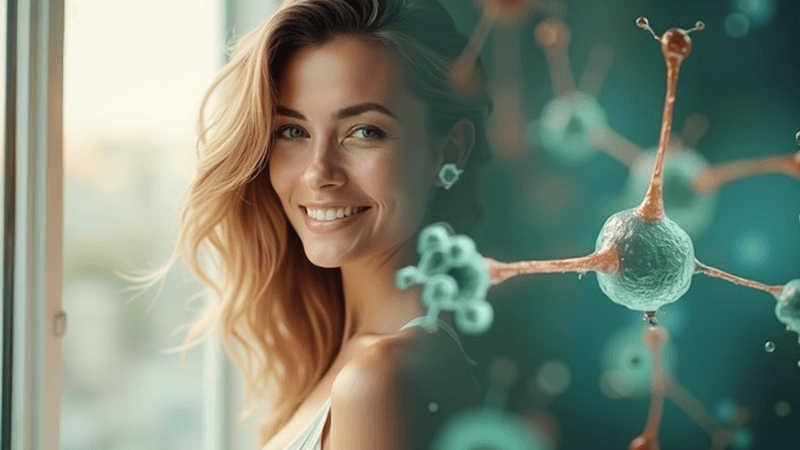Hidden Toxins May Speed Up Menopause
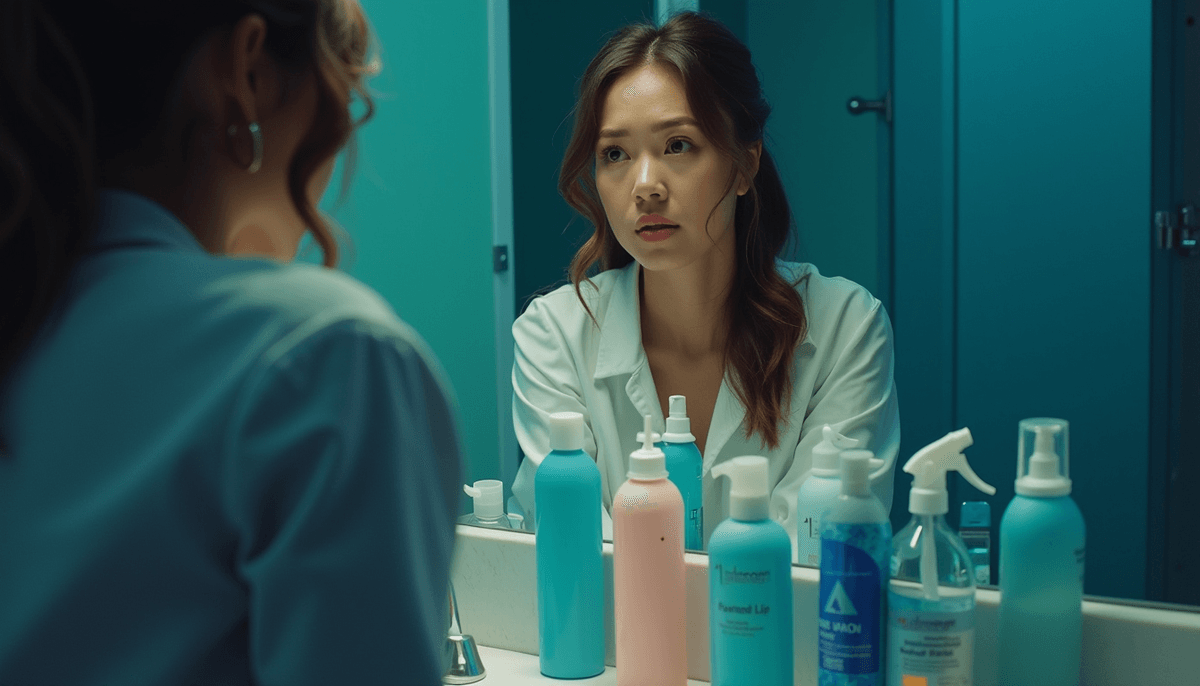
Look around your bathroom counter or under your kitchen sink. Those innocent-looking plastic containers, beauty products, and household cleaners might be hiding something that could affect your reproductive health more than you realize. As a medical professional who's spent years studying women's health, I've seen growing evidence about how everyday chemicals might be silently impacting our hormonal systems.
A groundbreaking research paper published in Frontiers in Endocrinology reveals concerning links between common chemicals and early menopause, bringing new urgency to understanding what's in our daily products.
Understanding EDCs: The Silent Disruptors
Think of your body's hormonal system as an intricate orchestra, with each hormone playing its unique part in perfect harmony. Endocrine Disrupting Chemicals (EDCs) are like uninvited musicians who show up and play off-key, disrupting the entire performance. These chemicals are everywhere - in plastic containers, cosmetics, food packaging, and even children's toys.
Have you ever wondered why some women experience menopause symptoms earlier than others?
Research shows that EDCs can accumulate in our bodies over time, potentially leading to various health issues, including early menopause. What's particularly concerning is that these effects can occur even with low-level exposure.
The Oxidative Stress Connection
Imagine your body as a car engine. Just like an engine produces exhaust fumes, our cells produce waste products called reactive oxygen species (ROS). Normally, our body has a sophisticated "exhaust system" (antioxidants) to handle these waste products. However, EDCs can overwhelm this system, leading to what scientists call oxidative stress.
Key Finding: When EDCs interfere with our natural antioxidant defenses, they can accelerate aging in our reproductive system, potentially leading to early menopause.
One of my patients, Sarah (name changed), was shocked to learn that her extensive use of certain plastic containers for food storage might have contributed to her hormonal imbalances. This led to an important conversation about making simple but effective changes in daily habits.
Practical Steps for Protection
Based on the research, here are evidence-based strategies to reduce EDC exposure:
-
Smart Storage Solutions
- Replace plastic containers with glass or stainless steel
- Never heat food in plastic containers
- Look for "BPA-free" products, but be aware that alternatives might not be safer
-
Beauty and Personal Care
- Choose products with simpler ingredients lists
- Avoid fragrances listed as "parfum" or "fragrance"
- Use Environmental Working Group's Skin Deep database to check product safety
-
Home Environment
- Dust regularly with a damp cloth
- Ventilate your home daily
- Remove shoes at the door to reduce tracking in chemicals
What one change could you make today to reduce your exposure to EDCs?
The Antioxidant Shield
The research highlights how supporting your body's natural antioxidant systems can help protect against EDC-related damage. Here's how:
- Eat rainbow-colored fruits and vegetables
- Include foods rich in selenium (Brazil nuts, fish)
- Consider organic produce when possible for items on the "Dirty Dozen" list
Important Note: While we can't completely avoid EDCs in modern life, we can significantly reduce our exposure through informed choices.
The connection between EDCs and early menopause isn't just about individual health - it's about understanding how our environment affects our bodies. As one of my colleagues often says, "Small changes, consistently applied, can lead to significant improvements in health outcomes."
"The goal isn't perfection, but progress in reducing our chemical exposure."
The research presents a clear message: while we can't control all aspects of our environment, we can make informed choices about the products we use and how we use them. Start with one change this week - perhaps switching to glass food storage containers or choosing a cleaner beauty product. Your future self might thank you for these small but significant steps toward hormone health.
Take a moment today to look through your daily products. Choose one item to replace with a safer alternative. Share your commitment to reducing EDC exposure with friends and family - creating awareness is the first step toward positive change.

Dr. Marcus Anthony Bennett
Dr. Marcus Bennett is a Seattle-based freelance medical writer and consultant specializing in mid-aged women's health. With a background in internal medicine and over a decade of experience in preventive care, he is dedicated to making complex health topics accessible. Dr. Bennett completed his MD at Johns Hopkins School of Medicine and residency at the University of Washington. His empathetic and evidence-based approach combines traditional medical expertise with a focus on health disparities, often incorporating practical lifestyle advice. Known for his clear, engaging communication, Dr. Bennett provides actionable insights to empower his audience.
